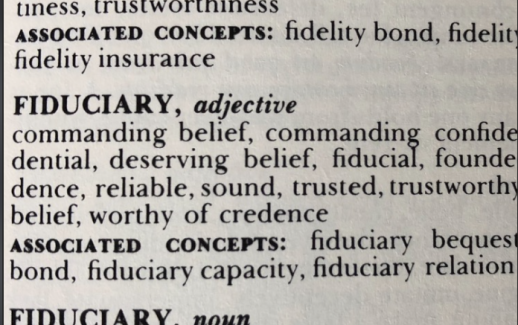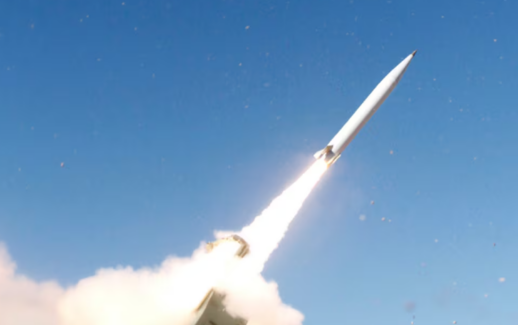The imprecise labeling of adversarial autocratic states in an information war can backfire on U.S., allies, and democracies in general.
“ChiComm,” “Marxist,” “rogue state,” “communist” and “criminal” are broad labels that do not specify how autocracies like China, Russia, and North Korea actually behave, use, and abuse those concepts as distinguished from the nation state concept they claim in common with the U.S. and other democracies.
Informationally you can punch your adversaries in the ideological back all day long, but it is more effective to hit them in their vital pressure points by clearly describing and showing their conduct, behavior, actions, and the results. Then you can contrast their ideology with force of conviction.
The U.S. and democratic allies must be more precise in public communications and diplomacy about how Russia, China, North Korea and other dictatorships behave as adversaries to human freedom and toward the nations that value and defend human freedom. Show the domestic human suffering at home tied to their actions.
Some old labels focus on ideologies that must be studied to be understood instead of observable conduct and behavior understandable to the many right away. In studying them, some may be taken with the utopian or ideal writings instead of focusing on what the nation holding those ideologies actually does. With ideological labels, not only may the adversary regime be provoked by being negatively defined, but will pass that on to their own people as if the criticism applied to them.
Ronald Reagan grasped this in using the words “evil empire” to describe the Soviet Union’s government of mass control combined with its expansionist agenda and tied it to the Soviet Union’s state terror, such as the shootdown of KAL-007 and the Soviets’ close relationships with nations that sponsored terrorism against US Marines in Lebanon. Simultaneously, Reagan spoke sympathetically and empathically of the Russian people to Americans and international audiences. By clearly describing Soviet conduct to the world, Reagan let the audiences contrast the Soviets’ behavior with their utopian ideological camouflage (communism) instead of attacking it directly.
Emphasizing the practical impossibility of Beijing’s, and formerly, the Soviets’ utopian Marxism or Communism helps debunk the delusion that it is a natural form of governance that occurs without forcing others to believe it. More precisely, the reason that such governments are hostile to freedom of religion is that freedom of religion competes either with the imperial religion they’ve authorized and imposed, or, competes directly with a quasi-religion of state in which the state (and impliedly whoever controls it) is the highest power.
When speaking of the communist state, Reagan used humor and sympathy to describe the hard time Russians had getting things done in the notoriously inefficient communist system in which human freedom had sclerosed. He patted Russians on the ideological back and used wordplays that Russians would appreciate. The best jokes about Russia’s handling of power come from Russians themselves.
Now we see similar behavioral characteristics to the old Soviet Union in Xi’s governance of China, albeit with multiples in human resources and capitalistic adaptations making China more capable than the Soviets were at the time. And we see North Korea acting aggressively not long after some new iteration of geopolitical trade or competition flares up between China and the United States.
How do China and Russia camouflage their autocratic, totalitarian, and imperial characteristics in the world’s eyes today? They use nation state status to pose as democratic, reasonable, responsible, and worthy of international influence and power despite rocketing forward in the world in despotic, totalitarian trajectories.
The Treaty of Westphalia defined modern states and their rights, moving the world toward a confederacy of nations sharing international principles and weak, quasi-enforceable laws of nation state autonomy and sovereignty favoring stronger states. Russian lifelong KGB-officer and President Vladimir Putin made powerful use of the nation state principles by conflating them with democratic, individual rights principles through his annual, international Valdai Conferences.
He merely substituted his own regime as if it were an individual natural person historically picked on by the United States in the Cold War, against which he created his own conduct-oriented labels: “unipolar,” “international bully,” “hegemon,” and more. He refrained for years from using the word “imperialist” in public, and I speculate that he did so because it was so associated with the Soviet Union’s propaganda, and did not work. Yet the term seems to have been showing up again, along with “establishment,” “deep state,” and “cabal,” labels borrowed from conspiracy theories and ideological terms used to attack the United States government throughout American history. These terms are a blend of labels used by apocalyptic religious sects, 1960’s radicals, and anti-semitic fringe groups Putin wants to use to turn America into what the Soviet Union became by the 1990s..
Mimicking democracies internationally by adopting nation state (not imperial) forms, China and Russia claim nation state status in a Westphalian mode, attending international political, economic, and scientific conferences, while claiming their autocratic, totalitarian, and imperial conduct toward people at home and abroad is irrelevant and “off the table” in such forums. So China attends Davos, and Russia participates in G20 and BRICS, but each retains as a right their autocratic, totalitarian, and imperial behaviors at home, and increasingly, wherever they expand their influence.
When today democratic powers label China and Russia “communist,” “criminal,” or “corrupt” without being more specific, they impliedly over or under-brand the negative behaviors. If they are not really communist, counterexamples to this shared over the internet will make the label look disingenuous. If they are not in all actions “criminal” or “corrupt,” but do some good internationally and at home, the over-labeling itself appears corrupt. Imprecise labeling invites China, Russia, and others to counter with charges of hypocrisy via information warfare. Add some published footage of domestic U.S. hypocrisy regarding democratic and individual liberties (provoked in part by autocrat information war), and democracies find their systemic and informational advantages compared with autocracies neutralized in the internet age.
The problem is not nation state structures, but how simplistic labels mislead with imprecision to self-defeat diplomacy, self-identity, statecraft, intelligence, competition and trade. So, while labeling other countries may be useful where kinetic warfare is imminent, it can actually be a self-defeating mechanism before conditions get there, or an accelerator toward warfare.
Another problem in the domestic politics of democracies is labeling economic platforms blending capitalist and socialist approaches as “Marxist” or “communist.” Such labeling, by falsely conflating blended capitalist-socialist policies (Social Security & Medicare anyone?) with communism gives autocracies that do promote communism or corrupt dictatorship opportunity to claim equivalency despite that select domestic socialistic policies within a free enterprise system of laws are far different from communism as practiced in China.
Broad ideological labels used in an undisciplined way tend to narrow a nation state’s options where they adopt a negative form of the ideological labels used by adversarial autocratic states indoctrinating their own people, such as “communism” in China. The risk becomes that foreign criticism will harden the Chinese people to invest in their regime, ironically, with a sense of ownership of the “ism.”

